
It’s hard to believe, but we’re already partway through the 2019 grant cycle. This year, we’ve chosen 21 finalists from the 318 letters of intent we received. Our review committee carefully selected each finalist based on specific criteria, including project feasibility, proposed objective(s), and regional impact. We’re happy to announce that the following farms have been invited to continue with the application process:
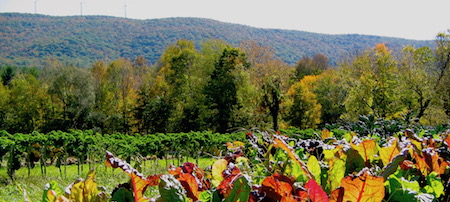 Many Forks Farm is a 7.5-acre farm in Massachusetts that produces vegetables, herbs, flowers, mushrooms, ginger, and berries, which are distributed through a CSA, farmers markets, Friendship Center Food Pantry, and the Berkshire Food Project free-lunch program. They strive to exceed organic certification guidelines, and support low-income families by offering discounts and accepting SNAP, WIC, and coupons for seniors. Many Forks requested $3,750 to create swales and berms planted with native perennials to help improve drainage and provide habitat for beneficial insects
Many Forks Farm is a 7.5-acre farm in Massachusetts that produces vegetables, herbs, flowers, mushrooms, ginger, and berries, which are distributed through a CSA, farmers markets, Friendship Center Food Pantry, and the Berkshire Food Project free-lunch program. They strive to exceed organic certification guidelines, and support low-income families by offering discounts and accepting SNAP, WIC, and coupons for seniors. Many Forks requested $3,750 to create swales and berms planted with native perennials to help improve drainage and provide habitat for beneficial insects
 Sisterland Farms, a 2-acre, woman-owned and trans person–operated farm in Port Angeles, WA, produces fruit, vegetables, and flowers, which they sell through a CSA and farmers markets. They requested $3,550 to improve soil health and water conservation by installing rain barrels, creating perennial hedgerows, starting a community compost program, and planting cover crops.
Sisterland Farms, a 2-acre, woman-owned and trans person–operated farm in Port Angeles, WA, produces fruit, vegetables, and flowers, which they sell through a CSA and farmers markets. They requested $3,550 to improve soil health and water conservation by installing rain barrels, creating perennial hedgerows, starting a community compost program, and planting cover crops.
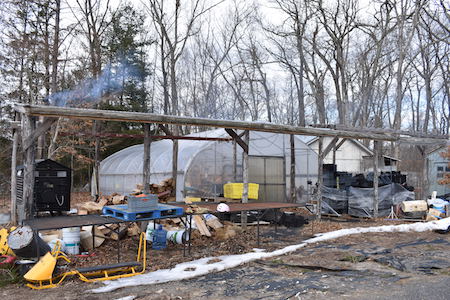
Daffodil Hill Growers, a 14-acre farm in Southbury, CT, grows a wide variety of vegetables that they distribute through restaurants, grocery stores, farmers markets, and a CSA. They also provide weekly donations to a local food bank. They requested $5,000 to purchase and install three hydroponic growing systems in an existing greenhouse, so they can grow lettuce and mixed greens year round.
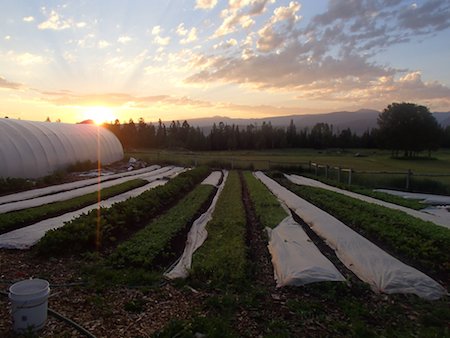 Huidekoper Ranch is a 1-acre farm in Wilson, WY, that produces organically grown salad greens, tomatoes, root vegetables, and microgreens, which they sell to restaurants, grocery stores, and a nonprofit farmstand. As a model of high-elevation mountain farming, they invest in minimal land impact and “grow in permanent raised beds with minimal tillage.” They requested $3,400 to purchase two gothic-style caterpillar tunnels to help extend their growing season, increase food production, and add cover crops into the rotation to increase soil health.
Huidekoper Ranch is a 1-acre farm in Wilson, WY, that produces organically grown salad greens, tomatoes, root vegetables, and microgreens, which they sell to restaurants, grocery stores, and a nonprofit farmstand. As a model of high-elevation mountain farming, they invest in minimal land impact and “grow in permanent raised beds with minimal tillage.” They requested $3,400 to purchase two gothic-style caterpillar tunnels to help extend their growing season, increase food production, and add cover crops into the rotation to increase soil health.
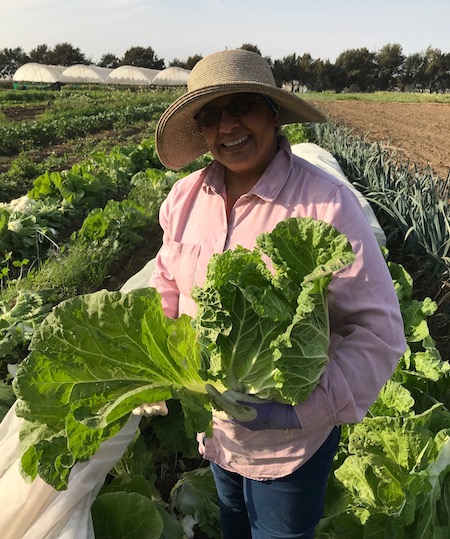 Robina’s Organics, a 1-acre farm in Salinas, CA, practices an agroecological model of farming that produces mixed vegetables and specialty Asian greens and herbs that are sold through ALBA Organics. Robina’s has been a site for University student training through a course on global ecology taught every semester. They requested $4,500 to install a greenhouse and further invest in developing and supporting natural pest control and pollination.
Robina’s Organics, a 1-acre farm in Salinas, CA, practices an agroecological model of farming that produces mixed vegetables and specialty Asian greens and herbs that are sold through ALBA Organics. Robina’s has been a site for University student training through a course on global ecology taught every semester. They requested $4,500 to install a greenhouse and further invest in developing and supporting natural pest control and pollination.
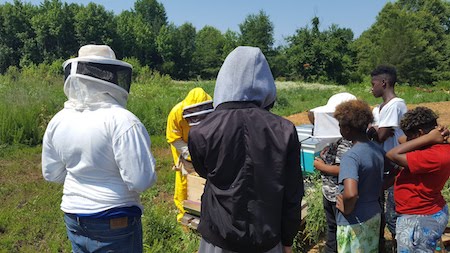 Sankofa Farms, a 2-acre farm in Cedar Grove, NC, produces vegetables, chicken, quail, and duck eggs, and seeks to create a sustainable food source for those in both rural and urban parts of North Carolina. A portion of their output is donated to communities impacted by food insecurity. They requested $2,900.39 to purchase low tunnel supplies and a caterpillar tunnel, and to increase their honeybee production.
Sankofa Farms, a 2-acre farm in Cedar Grove, NC, produces vegetables, chicken, quail, and duck eggs, and seeks to create a sustainable food source for those in both rural and urban parts of North Carolina. A portion of their output is donated to communities impacted by food insecurity. They requested $2,900.39 to purchase low tunnel supplies and a caterpillar tunnel, and to increase their honeybee production.
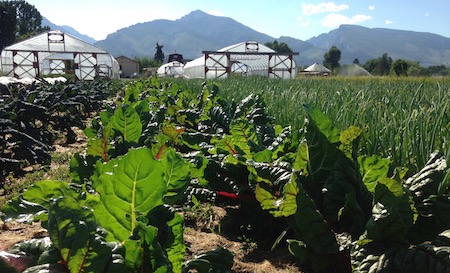 SweetRoot Farm is a 3-acre farm in Hamilton, MT, that produces eggs along with a wide range of vegetables, herbs, flowers, and berries, which they distribute through farmers markets, restaurants, a farm membership program, and their farm store. They requested $2,500 to purchase cover crop seeds and sprinklers to improve their soil health.
SweetRoot Farm is a 3-acre farm in Hamilton, MT, that produces eggs along with a wide range of vegetables, herbs, flowers, and berries, which they distribute through farmers markets, restaurants, a farm membership program, and their farm store. They requested $2,500 to purchase cover crop seeds and sprinklers to improve their soil health.
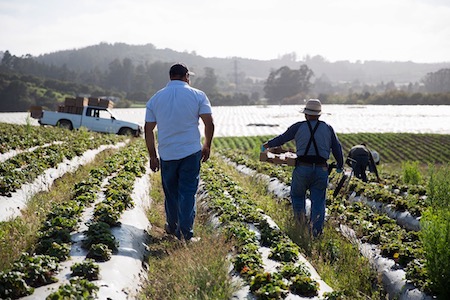 JSM Organics, a 60-acre farm in Aromas, CA, grows organic vegetables, cut flowers, strawberries, raspberries, and blackberries, which they sell at grocery stores, restaurants, and farmers markets. They requested $5,000 to purchase a pyro-weeder, beekeeping equipment, beneficial seed mix, a quick-cut greens harvester, and a low-energy greens dryer.
JSM Organics, a 60-acre farm in Aromas, CA, grows organic vegetables, cut flowers, strawberries, raspberries, and blackberries, which they sell at grocery stores, restaurants, and farmers markets. They requested $5,000 to purchase a pyro-weeder, beekeeping equipment, beneficial seed mix, a quick-cut greens harvester, and a low-energy greens dryer.
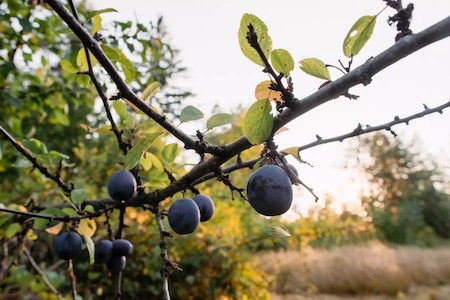 DoLittle Pastures, a 15-acre farm in Lacomb, OR, produces pastured meat and poultry, as well as woodland food and herbal products. Dedicated to food security, DoLittle strives to provide affordable nutritious food to all, while creating communities that “nourish women and children.” They requested $3,700 to purchase fruit trees, seeds, compost, and other supplies to create a sustainable food forest.
DoLittle Pastures, a 15-acre farm in Lacomb, OR, produces pastured meat and poultry, as well as woodland food and herbal products. Dedicated to food security, DoLittle strives to provide affordable nutritious food to all, while creating communities that “nourish women and children.” They requested $3,700 to purchase fruit trees, seeds, compost, and other supplies to create a sustainable food forest.
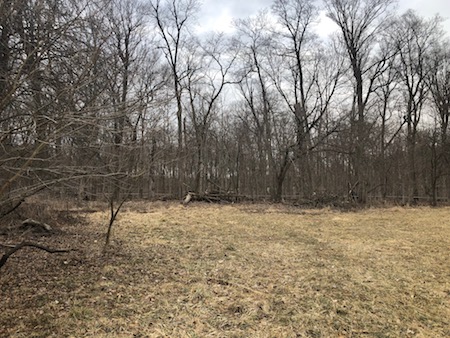 Funks Grove Heritage Farm is a 9-acre farm in McLean, IL, that produces small grains and fruit, while fostering a community grounded in compassion, innovation, and education. They requested $2,600 to create habitats for beneficial insects and animals by installing 10 bee boxes, four bat boxes, two owl boxes, and two large plots of pollinator plantings.
Funks Grove Heritage Farm is a 9-acre farm in McLean, IL, that produces small grains and fruit, while fostering a community grounded in compassion, innovation, and education. They requested $2,600 to create habitats for beneficial insects and animals by installing 10 bee boxes, four bat boxes, two owl boxes, and two large plots of pollinator plantings.
 Windswept Acres, a veteran-owned 3-acre farm in Chino Valley, AZ, grows and pickles a variety of vegetables, which they sell at farmers markets. They work hard to reduce food waste, and excess produce is donated to veterans through American Legion Post 40 and the Cornucopia Food Recovery Program. They requested $4,685.20 to complete two hoop houses to extend their growing season, plant pollinator-friendly perennials, and add beehives.
Windswept Acres, a veteran-owned 3-acre farm in Chino Valley, AZ, grows and pickles a variety of vegetables, which they sell at farmers markets. They work hard to reduce food waste, and excess produce is donated to veterans through American Legion Post 40 and the Cornucopia Food Recovery Program. They requested $4,685.20 to complete two hoop houses to extend their growing season, plant pollinator-friendly perennials, and add beehives.
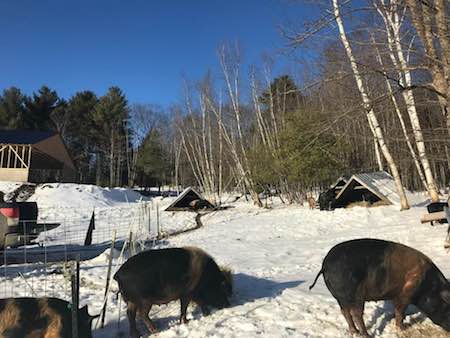 Dogpatch Farm, a 28-acre farm in Washington, ME, produces heritage pork and pastured chickens and turkeys, which Dogpatch believes deserve a “happy, dignified life.” They also grow vegetables and make jam and baked goods. Many Dogpatch products can be found in restaurants and stores throughout Maine, Massachusetts, and New Hampshire. They requested $3,690 to purchase and install a water catchment system.
Dogpatch Farm, a 28-acre farm in Washington, ME, produces heritage pork and pastured chickens and turkeys, which Dogpatch believes deserve a “happy, dignified life.” They also grow vegetables and make jam and baked goods. Many Dogpatch products can be found in restaurants and stores throughout Maine, Massachusetts, and New Hampshire. They requested $3,690 to purchase and install a water catchment system.
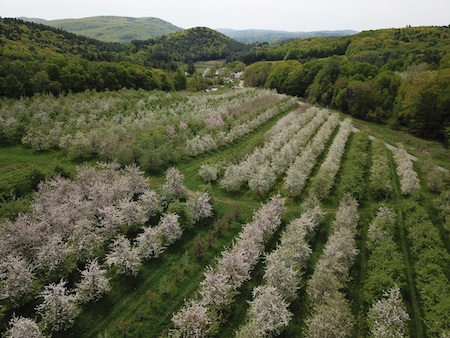
Scott Farm is a 40-acre farm in Dummerston, VT, that began cultivating in 1791. They grow heirloom fruit (mostly apples), which they sell at their farm market and to wholesale co-ops, markets, and distributors, including The FruitGuys! Their lower-grade fruit is sold to hard cider makers. They requested $2,203.76 to create a habitat for and educate the public about native pollinators crucial to a flourishing farm.
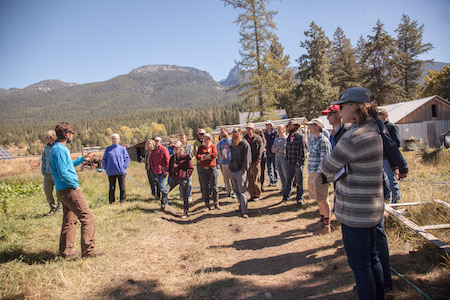 Fresh Roots Farm, a 5-acre farm in Polson, MT, produces certified organic vegetables, fruits, and seeds. A member of Western Montana Growers Cooperative, Fresh Roots is dedicated to supporting and contributing to a locally sourced sustainable food system in Northwestern Montana. They requested $3,367 to convert their Allis Chalmers G tractor to 48v electric.
Fresh Roots Farm, a 5-acre farm in Polson, MT, produces certified organic vegetables, fruits, and seeds. A member of Western Montana Growers Cooperative, Fresh Roots is dedicated to supporting and contributing to a locally sourced sustainable food system in Northwestern Montana. They requested $3,367 to convert their Allis Chalmers G tractor to 48v electric.
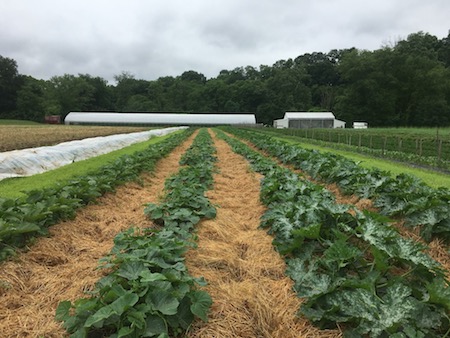 Village Acres Farm, a 25-acre farm in Mifflintown, PA, grows vegetables and raises laying hens and Shetland sheep. Dedicated to providing local organic food to all, their CSA includes a community fund to help those in need of reduced-cost shares. They requested $4,800 to improve their pastures and transition to more perennial crops.
Village Acres Farm, a 25-acre farm in Mifflintown, PA, grows vegetables and raises laying hens and Shetland sheep. Dedicated to providing local organic food to all, their CSA includes a community fund to help those in need of reduced-cost shares. They requested $4,800 to improve their pastures and transition to more perennial crops.
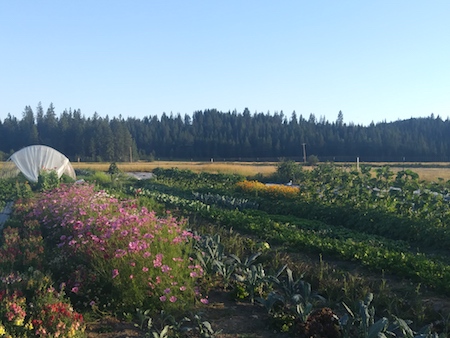 Thompson Creek Farm is a 12-acre farm in Newman Lake, WA, that produces certified organic vegetables, flowers, strawberries, and raspberries, which they distribute through a CSA, farmers markets, and restaurants. Invested in creating a completely self-sustaining system, they requested $4,300 to install additional hoop houses and caterpillar tunnels, and to purchase cover crop seed, perennial plants and trees, and tools.
Thompson Creek Farm is a 12-acre farm in Newman Lake, WA, that produces certified organic vegetables, flowers, strawberries, and raspberries, which they distribute through a CSA, farmers markets, and restaurants. Invested in creating a completely self-sustaining system, they requested $4,300 to install additional hoop houses and caterpillar tunnels, and to purchase cover crop seed, perennial plants and trees, and tools.
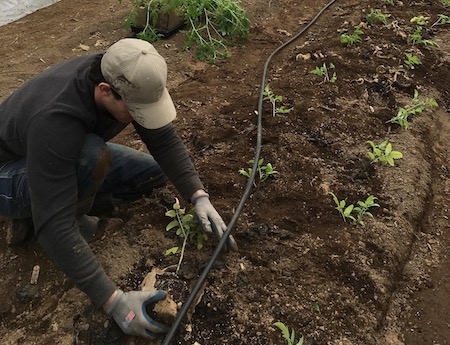 Wilderness Greenhouse, a 1-acre farm near Homer, AK, produces tomatoes, cucumbers, fresh salsas, edible hanging baskets, and other seasonal vegetables. They requested $2,200 to expand their water catchment system, purchase cover crop seeds, and set up a vermicomposting system.
Wilderness Greenhouse, a 1-acre farm near Homer, AK, produces tomatoes, cucumbers, fresh salsas, edible hanging baskets, and other seasonal vegetables. They requested $2,200 to expand their water catchment system, purchase cover crop seeds, and set up a vermicomposting system.
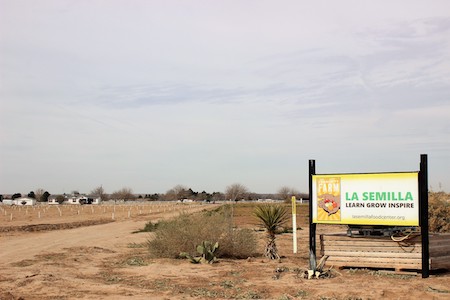 La Semilla Community Farm, a certified bee-friendly, nonprofit, 7-acre farm in Anthony, NM, produces vegetables, herbs, and honey, much of it used for La Semilla’s Edible Education program, which serves approximately 3,000 students from 27 schools. They also sell produce to school districts, as well as rural and underserved urban communities, using their Farm Fresh Mobile Market bus. They requested $4,196 to purchase trees and plants for a native vegetation buffer and windbreak.
La Semilla Community Farm, a certified bee-friendly, nonprofit, 7-acre farm in Anthony, NM, produces vegetables, herbs, and honey, much of it used for La Semilla’s Edible Education program, which serves approximately 3,000 students from 27 schools. They also sell produce to school districts, as well as rural and underserved urban communities, using their Farm Fresh Mobile Market bus. They requested $4,196 to purchase trees and plants for a native vegetation buffer and windbreak.
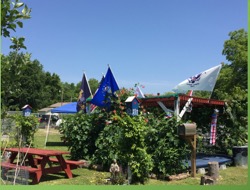 Veteran’s Employment Base Camp (VEBCOG) is a nonprofit organization designed to reintroduce unemployed, disabled, and homeless veterans back into the workforce as productive, employable individuals. Located in New Bern, NC, VEBCOG uses horticulture therapy to help rehabilitate veterans and grow organic fruits and vegetables to sell at farmers markets and distribute to disabled veterans. They requested $3,500 to install two Slovenian beehives, which are more accessible to disabled beekeepers.
Veteran’s Employment Base Camp (VEBCOG) is a nonprofit organization designed to reintroduce unemployed, disabled, and homeless veterans back into the workforce as productive, employable individuals. Located in New Bern, NC, VEBCOG uses horticulture therapy to help rehabilitate veterans and grow organic fruits and vegetables to sell at farmers markets and distribute to disabled veterans. They requested $3,500 to install two Slovenian beehives, which are more accessible to disabled beekeepers.
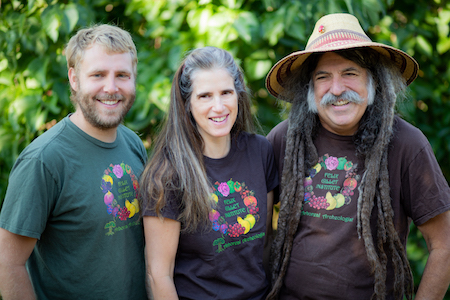 Felix Gillet Institute, a 2-acre, nonprofit nursery in Nevada City, CA, sells heirloom nut and fruit trees and vines through an online catalog. Since 2003, the institute has reintroduced and preserved historic California and Pacific Northwest fruits and vegetables, and fostered land conservation through science and education. They requested $5,000 for supplies to expand their orchard, including materials for a propagation hoop house to help them cultivate rare varieties that are challenging to grow.
Felix Gillet Institute, a 2-acre, nonprofit nursery in Nevada City, CA, sells heirloom nut and fruit trees and vines through an online catalog. Since 2003, the institute has reintroduced and preserved historic California and Pacific Northwest fruits and vegetables, and fostered land conservation through science and education. They requested $5,000 for supplies to expand their orchard, including materials for a propagation hoop house to help them cultivate rare varieties that are challenging to grow.
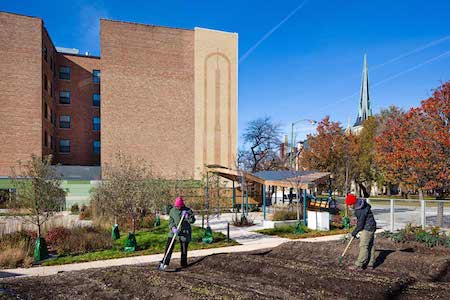 Chicago FarmWorks, a 1-acre, nonprofit, urban farm in Chicago, IL, provides vegetables, herbs, fruit, nutrition education, and employment opportunities to low-income Chicagoans. A part of Heartland Alliance’s urban agriculture program, FarmWorks supports Harvest Commons, a green-living housing building that’s home to 89 people who require services to remain stably housed. Residents have volunteer opportunities with the urban farm, apiary, flock of chickens, and teaching kitchen, which help feed, educate, and support the community. They requested $5,000 to extend their growing season with a hoop house, row cover, and cover crop seed.
Chicago FarmWorks, a 1-acre, nonprofit, urban farm in Chicago, IL, provides vegetables, herbs, fruit, nutrition education, and employment opportunities to low-income Chicagoans. A part of Heartland Alliance’s urban agriculture program, FarmWorks supports Harvest Commons, a green-living housing building that’s home to 89 people who require services to remain stably housed. Residents have volunteer opportunities with the urban farm, apiary, flock of chickens, and teaching kitchen, which help feed, educate, and support the community. They requested $5,000 to extend their growing season with a hoop house, row cover, and cover crop seed.
Next Steps
Needless to say, there’s a lot of good growing out there, and our review committee definitely has some tough choices ahead. They will review the finalist applications in detail and select 15 farms to receive grants this year. Winners will be announced by Friday, April 5, 2019.
Thanks so much to all the amazing farms and nonprofits who submitted letters of intent. Together we’re creating a better, more sustainable world and farming family.




